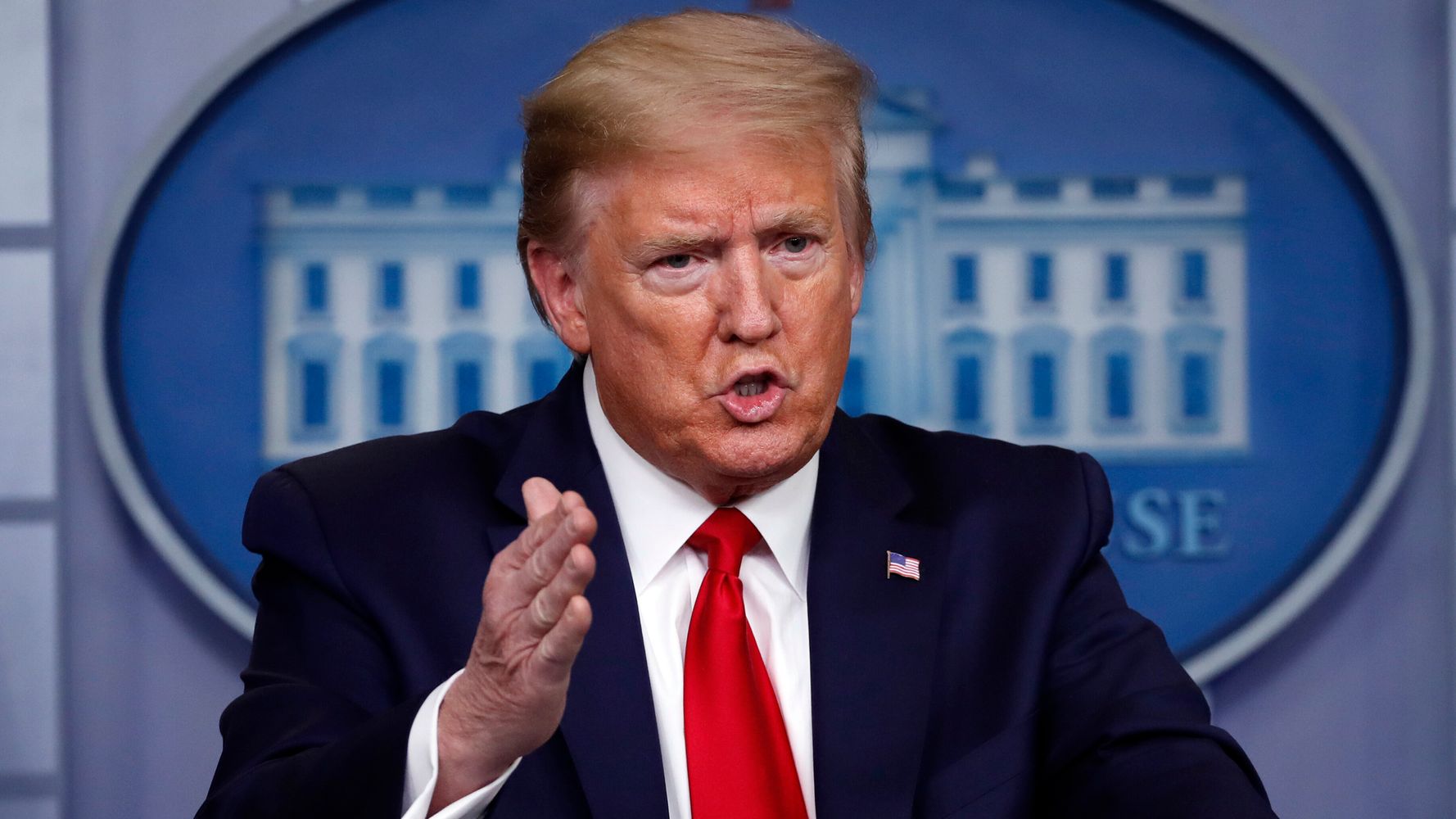[ad_1]

The Deferred Action for Childhood Arrivals program, or DACA, will remain in place, keeping nearly 650,000 undocumented young people safe from deportation, thanks to a ruling on Thursday by the Supreme Court.
In a 5-4 decision authored by Chief Justice John Roberts, the court ruled that President Donald Trump wrongly ended DACA. The majority opinion called the decision to terminate the program an “arbitrary” and “capricious” violation of the law.
While the ruling leaves the door open for Trump to rescind the program in the future, it offers a huge relief for hundreds of thousands of people who came to the U.S. as children, often called Dreamers, and are currently able to remain under the Obama-era program. DACA has been life-changing for these undocumented immigrants, removing the looming threat of deportation and allowing them to work legally under permits that must be renewed every two years. But President Donald Trump, along with Republican allies, argued that President Barack Obama had overstepped his authority in creating DACA, and Trump announced plans in 2017 to end the program.
Legal challenges kept the program in place, and in the meantime, DACA recipients were allowed to renew their status. It allowed them to find better jobs, increase their earnings and get driver’s licenses. They pay taxes and buy homes. Some have children who are U.S. citizens. An estimated 29,000 DACA recipients are working in health care, some of them on the front lines of the coronavirus pandemic, as pro-DACA groups pointed out in a supplemental brief filed with the Supreme Court in April. (Although the justices heard oral argument in the DACA case in November, they agreed to consider this new information as well.)
The court ultimately ruled that the then-acting secretary of the Department of Homeland Security, Elaine Duke, violated the Administrative Procedure Act when she terminated the program by failing to consider important matters, including “what if anything to do about the hardship to DACA recipients.” Roberts wrote that the decision should be sent back to DHS to reconsider.
“We do not decide whether DACA or its rescission are sound policies,” Roberts writes in the opinion. “‘The wisdom’ of those decisions ‘is none of our concern.’ … We address only whether the agency complied with the procedural requirement that it provide a reasoned explanation for its action. … That dual failure raises doubts about whether the agency appreciated the scope of its discretion or exercised that discretion in a reasonable manner.”
Most of the Republican-appointed justices on the court disagreed with the ruling.
“Today’s decision must be recognized for what it is: an effort to avoid a politically controversial but legally correct decision,” Justice Clarence Thomas wrote in a dissent.
Trump highlighted Thomas’ dissent in a tweet after the order, arguing he must be reelected so he can place more conservatives on the court. He later threatened “to start this process all over again,” seemingly with regards to ending DACA.
Like his predecessor, Trump has taken executive actions on immigration without congressional approval. Early in his presidency, Trump barred people from several Muslim-majority nations from entering the country, following up on a campaign promise to ban Muslims from coming to the United States. The Supreme Court ultimately allowed a watered-down version of that ban to go into effect. In April of this year, Trump issued another order limiting legal immigration, claiming that the coronavirus pandemic and related economic slowdown necessitated it.
The inherent argument from the Trump White House seemed to be that a president ― or at least this president ― can do whatever he wants on immigration so long as the end result is keeping people out.
They have a sigh of relief this morning. But what about next week?
Sen. Dick Durbin (D-Ill.)
Obama announced DACA in June 2012 at the urging of Dreamers, Latino organizations and many Democratic lawmakers. The program was an effort to use executive action to grant protections to young undocumented immigrants whom Congress had long failed to protect. It is open to those who entered before the age of 16 and were under the age of 31 as of June 15, 2012 (the day the program was created) and does not cover people who have committed a felony or serious misdemeanors. The Obama administration and DACA supporters argued that the program is permissible as an exercise of prosecutorial discretion, allowing authorities to focus on deporting others.
While Trump is likely to decry the court for blocking one of his policies, it’s also something of a political gift. The majority of voters back legal status for undocumented young people who came to the U.S. as children, meaning throwing them back into limbo ahead of the 2020 election would likely be unpopular. And although White House officials and some Republicans have said they’d act to help Dreamers if the Supreme Court allowed Trump to rescind DACA, there’s plenty of past precedent that indicates they wouldn’t.
While politicians from both parties have said that people who came to the U.S. as kids shouldn’t be punished, Republican lawmakers have repeatedly blocked measures to help them. The Dream Act, a bill initially proposed in 2001 to give Dreamers a path to citizenship, failed most recently in 2010. In 2013, House Republicans blocked broader immigration reform that would have given many undocumented people the opportunity to gain citizenship, even after the legislation passed in the Senate.
Trump’s election in 2016, after a campaign defined by his vilification of immigrants, effectively doomed the chances for progress on major immigration reform. The president has occasionally given lip service to supporting efforts to protect Dreamers, including tweeting in November that if the Supreme Court allowed him to end DACA, “a deal will be made with Dems for them to stay!”
In practice, though, he has conditioned potential support for Dreamer protections on the passage of his own priorities, such as funding a border wall, limiting access to asylum and changing the legal immigration process. Republicans, even those who state support for Dreamers, also largely back tying protections to broader immigration reform.
Trump has also disparaged Dreamers. In the same November tweet saying he would make a deal for DACA recipients to stay in the U.S., Trump wrote: “Many of the people in DACA, no longer very young, are far from ‘angels.’ Some are very tough, hardened criminals.”
Justice Sonia Sotomayor noted Trump’s many statements on undocumented immigrants and Latinos in her concurring opinion. She wrote that the argument that rescinding DACA violated the Equal Protection Clause was given too little consideration in Roberts’ opinion.
“I would not so readily dismiss the allegation that an executive decision disproportionately harms the same racial group that the President branded as less desirable mere months earlier,” Sotomayor writes.
Ending the program would be catastrophic for Dreamers.
During oral arguments last fall in the case known as Department of Homeland Security v. Regents of the University of California, Chief Justice John Roberts and Justice Brett Kavanaugh indicated they might side with the administration. Roberts suggested that the program could be phased out and that ending it wouldn’t put DACA recipients at risk of deportation.
“The whole thing was about work authorization and these other benefits,” Roberts said. “Both administrations [Trump and Obama] have said they’re not going to deport the people.”
But that was no guarantee. While some Trump administration officials have said DACA recipients wouldn’t be priorities for deportation should they lose their protected status, Trump ended other Obama administration policies prioritizing some immigrants for deportation over others. The Immigration and Customs Enforcement agency has reopened removal cases against DACA recipients, and ICE acting director Matthew Albence confirmed in January that if individuals “get ordered removed and DACA is done away with by the Supreme Court, we can actually effectuate those removal orders.”
In early June, Sen. Dick Durbin (D-Ill.), a longtime advocate for Dreamers, asked the head of ICE’s deportation arm whether it would carry out removal of DACA recipients, should the program be eliminated. The answer was yes.
Henry Lucero, director of ICE’s Enforcement and Removal Operations, told Durbin in a hearing that there are no current plans on the matter and that orders for removal come from immigration judges or, in certain cases, agencies that carried out the arrest.
“ICE carries out those lawful orders and will continue to do so,” Lucero said.
The Supreme Court decision comes at a particularly painful time for people of color, especially Black people, in the United States, amid nationwide protests over police violence. While the majority of DACA recipients are Hispanic or Latino, nearly 11,000 people with the protections are from countries in which most immigrants to the U.S. are Black, according to the Center for American Progress.
While the decision was a positive one for DACA recipients, it’s not a permanent solution. Democrats are pushing for legislation that would grant Dreamers a path to citizenship, which would give them long-term safety even if Trump or a future president rescinded DACA.
Durbin called on the Senate floor for Congress to pass a legislative solution and, in the meantime, for Trump to leave DACA in place until at least the end of the year.
“Because of the Supreme Court decision, they have another day in America. They have a sigh of relief this morning,” Durbin said, speaking about a family with two DACA recipients. “But what about next week? What will the Trump administration do to them next week?”
Dreamers also celebrated the decision while pointing out the need for more to be done.
“DACA was possible because immigrant youth imagined and demanded it,” Greisa Martinez Rosas, a DACA recipient and leader at the Dreamer-led group United We Dream Action, said in a statement. “Today’s ruling is another reminder that when people directly impacted are those pushing for solutions, that’s when transformational change happens.”
Calling all HuffPost superfans!
Sign up for membership to become a founding member and help shape HuffPost’s next chapter
[ad_2]
Source link

